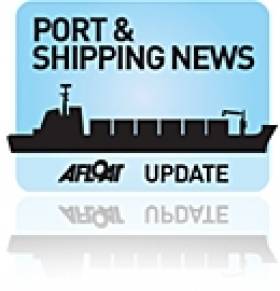Displaying items by tag: DublinBikenhead
Birkenhead Docks Upbeat On Future Growth
#PORTS – The operator of Birkenhead Docks at Twelve Quays Terminal, says it is confident it will recover the business it lost when DFDS Seaways closed down ferry operations last year, according to a report in today's Liverpool Daily Post.
Birkenhead Port, part of the Peel Group, says overall tonnage for the year to March stood at 3.2m tonnes – down 3% on the previous year. It said the fall was due to DFDS's decision to shut its Birkenhead-Dublin routes in January, 2011 (click HERE).
In accounts newly filed at Companies House, Birkenhead Port said business for the first ten months of the year had been strong. But it said that, in the final quarter, ongoing growth on its Belfast route was "more than offset by the loss of all Dublin volume".
It added: "While, in the short term, the loss of the DFDS business will adversely impact revenues and overall financial result, in the medium term the directors are confident that the company will recover this lost business as we look to contract with another operator at this flagship, purpose-built roll-on, roll-off facility."
It said that, with Stena Line axing its Fleetwood-Larne service, Birkenhead could attract more business to its Belfast route.
























































